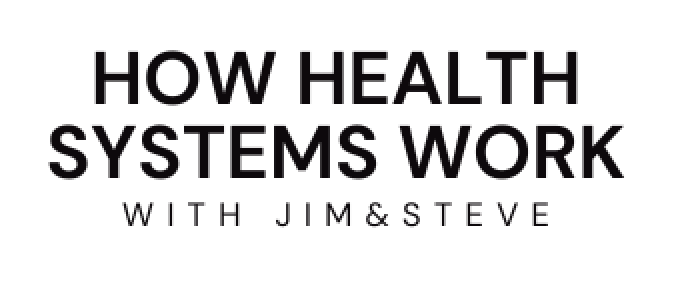Bain Farris: How Strong Physician Partnerships Shape Better Health Systems
In this episode of How Health Systems Work, hosts Jim Burke and Steve Pratt welcomed Bain Ferris, a seasoned healthcare executive with a remarkable career spanning hospitals, health plans, and consulting. Bain shared reflections on his journey, the persistent challenges of healthcare transformation, and the critical role of physician partnerships.
A Career Built on Systems Thinking
Bain’s entry into healthcare was shaped early on by his father, a physician. While he initially considered following in his father’s footsteps, Bain discovered that his real passion lay in understanding how systems work. This led him to earn a master’s in health administration and embark on a career that included leadership roles at St. Vincent Hospital, Anthem (formerly Blue Cross Blue Shield of Indiana), and health systems across California, Colorado, and Indiana.
Throughout his career, Bain remained deeply focused on the structure of healthcare delivery and the imperative of aligning systems to serve both patients and providers effectively.
The Elusive Shift from Volume to Value
One of the recurring themes of the conversation was the long-promised transition from volume-based to value-based care. Bain noted that, despite decades of policy initiatives and industry rhetoric, real progress remains slow.
“Everyone talks about value over volume, but without fundamentally restructuring the system, you’re just trying to put premium fuel in an old engine that can’t handle it,” Bain remarked.
He emphasized that genuine cost savings and quality improvements require more than tweaks to payment models—they demand reimagining the very architecture of care delivery.
Partnering with Physicians: A Formula for Success
Bain’s deep respect for physicians was a throughline in his leadership philosophy. From his earliest days as an administrator, he prioritized building authentic partnerships with medical staff. Whether it was bringing together past presidents of the medical staff for breakfast or personally calling physicians to involve them in major initiatives, Bain worked to ensure that doctors had a meaningful seat at the table.
His approach paid dividends, particularly in projects like the development of a new hospital in Denver. As Bain recounted, while physicians initially resisted time-consuming planning sessions, their involvement ultimately led to facilities and processes that worked seamlessly for clinicians and patients alike.
“I don’t know how you make substantive improvements without engaging physicians as true partners,” Bain reflected.
The Evolving Role of Hospitals
Looking ahead, Bain sees hospitals playing a crucial—if changing—role. While the inpatient setting will continue to be essential for the most acutely ill and for training future healthcare professionals, much of care will increasingly shift to outpatient and home-based settings.
He also pointed to the promise of emerging technologies, including AI and telemedicine, in extending access and improving care coordination—especially in rural and underserved communities.
Lessons for Emerging Healthcare Leaders
Bain’s advice for aspiring executives is clear:
Find trustworthy physician partners: Identify clinicians with integrity who can guide decision-making.
Engage early and authentically: Involve key stakeholders from the start, even when it’s inconvenient.
Stay visible and connected: Get out of the office, walk the halls, and build relationships at all levels.
Embrace lifelong learning: The complexity of healthcare demands continuous education and curiosity.
Final Thoughts
This episode was a masterclass in leadership, change management, and the enduring complexities of healthcare transformation. Bain Ferris’s blend of wisdom, humility, and humor offers invaluable guidance for those striving to navigate—and improve—our healthcare systems.

